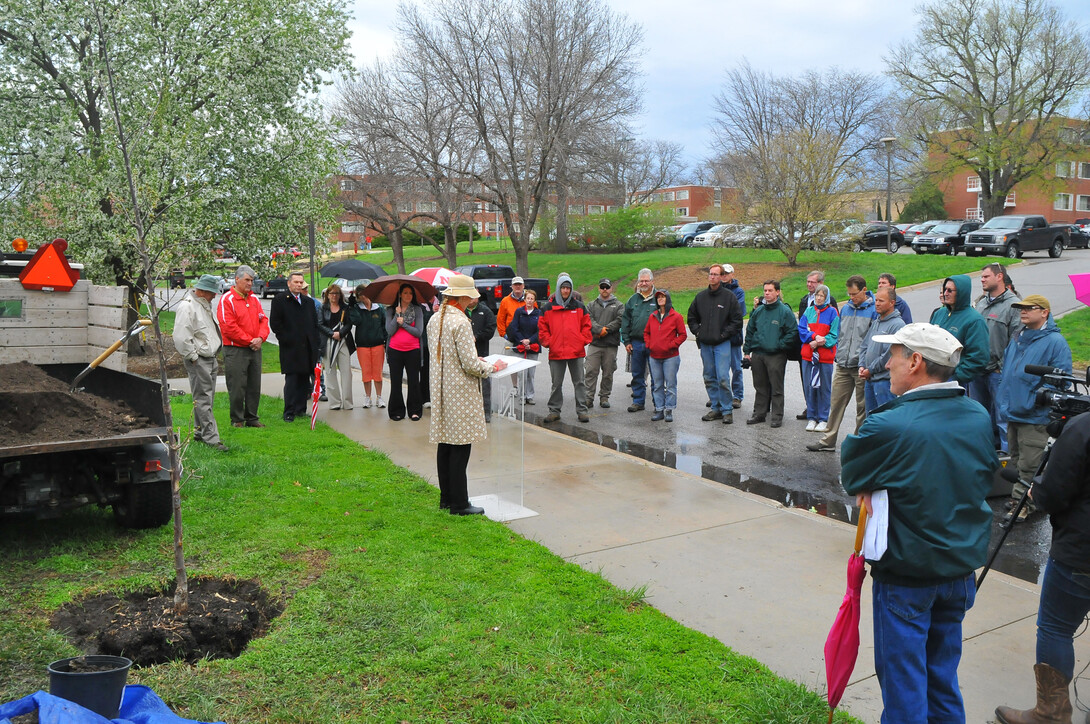
For the seventh-straight year, the Arbor Day Foundation has honored UNL with a Tree Campus USA designation.
The award, which recognizes UNL’s longstanding commitment to healthy trees and urban forest management, will be celebrated April 25 with a student-led tree planting on City Campus.
“The Tree Campus USA designation is an honor that shows that the University of Nebraska–Lincoln is dedicated to environmental stewardship and the care of trees on campus,” said Eileen Bergt, assistant director of Landscape Services. “The designation is certainly a point of pride for our Landscape Services crews. They work hard to improve and maintain the grounds here at UNL.”
The student-led tree planting — which begins at 10 a.m. near the Landscape Services building at 1309 N. 17th St. — fulfills one of Tree Campus USA’s five core standards of tree care and community engagement. Those standards, which must be met to earn the award, are establishing a campus tree advisory committee; evidence of a campus tree-care plan; verification of dedicated annual expenditures on the campus tree-care plan; involvement in an Arbor Day observance; and the institution of a service-learning project aimed at engaging students.
UNL is one of the original nine universities to earn the Tree Campus USA designation when the Arbor Day Foundation and Toyota launched the program in 2008. Today, more than 190 institutions of higher education are in the program. The list includes seven Big Ten universities: UNL, Michigan, Ohio State, Indiana, Purdue, Iowa and Maryland.
Overall, UNL has more than 9,000 trees on City and East campuses. Bergt said Landscape Services has already planted 25 trees on East Campus this spring, with plans for 20 more on City Campus.
Since earning the first Tree Campus USA honor in 2008, UNL has planted 724 trees on campus. In that same timeframe, 588 trees have been removed due to construction, disease, drought and storm damage.
Bergt said Landscape Services is developing a historic tree tour of campus. The project, which will include a variety of walking paths to explore and distances to cover, is being developed as a website. It will be unveiled at a later date.
“The trees on campus really can tell you a lot about the history of this university,” Bergt said. “The tree tour is an interesting project and one that fits alongside UNL’s commitment to urban forest management.”
For more information on the Tree Campus USA program, go to http://go.unl.edu/treecampus.








